SUMMARY
This is AI generated summarization, which may have errors. For context, always refer to the full article.
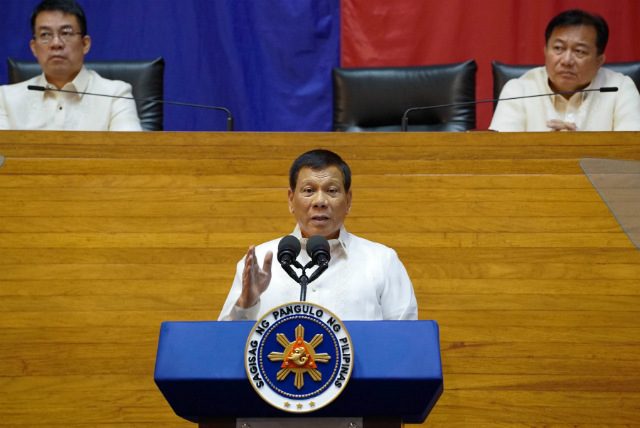
President Rodrigo Duterte will deliver his last State of the Nation Address (SONA) in a couple of weeks, and he will do so with little to show for getting the work done in terms of legislation.
Of the 21 priority bills he called on Congress to pass during in his 2020 SONA, only four were signed into law. As for bills that at least passed on final reading, the House of Representatives had eight others, while the Senate only had one.
What did Duterte do with his overwhelming control of both chambers of Congress?
Ateneo School of Government research fellow Michael Yusingco said Duterte’s rate of enacting priority bills was considered “low” compared to previous presidents.
“Every SONA that’s announced, the list is announced, it’s publicized. And yet, still, somehow he gets the least in the list enacted,” Yusingco said in an interview with Rappler.
Popularity like Duterte’s could only go so far without political maneuvering, said University of the Philippines professor Alicor Panao, who studies executive-legislative relations.
“Popularity is just one factor. Is that enough to pass a law? If you look at the President, he looks very powerful because he’s popular. But if you look at how laws passed, it doesn’t seem so,” Panao said.
Rappler spoke with lawmakers to figure out what happened with the pieces of legislation Duterte promoted but failed to follow through. They described Duterte as a “distant” leader who decided the outcome of many disputes in Congress, but failed to push lawmakers and senators in his supermajority to accomplish his legislative agenda.
Duterte the distant leader
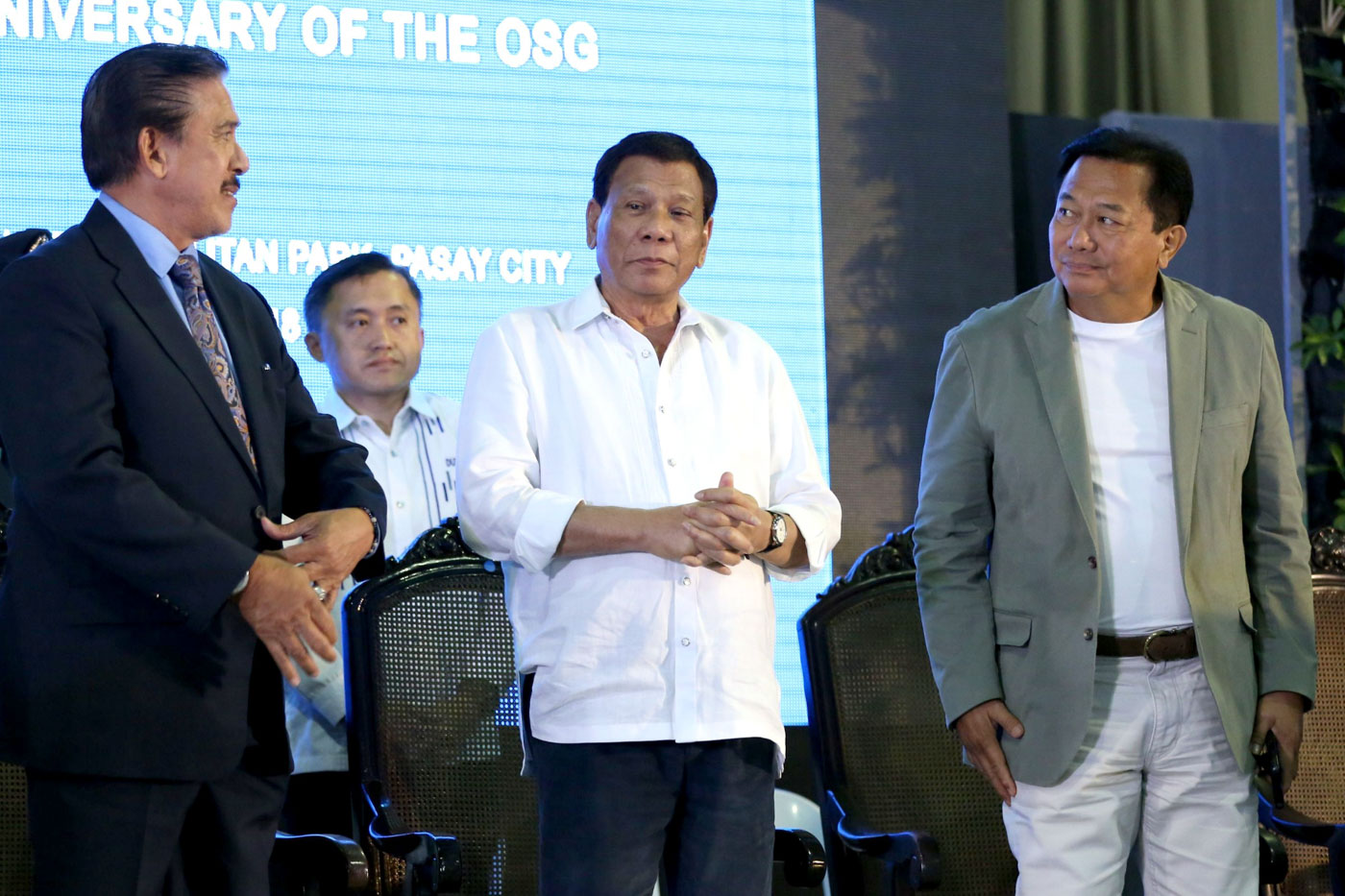
Rodrigo Duterte’s greatest power play was his unprecedented ability to emerge as the political victor even as he allowed the lesser lords in Congress to play their game of thrones.
The turf war that unfolded at the Batasang Pambansa in 2018 encapsulated this. Foreign dignitaries and Cabinet members watched in shock as former president-turned-Pampanga congresswoman Gloria Macapagal-Arroyo ousted Pantaleon Alvarez as House Speaker, stealing the spotlight from Duterte’s SONA.
Duterte’s inclination to distance himself from the affairs of Congress gave wiggle room for key power brokers – like Arroyo, the late dictator’s daughter and now-Senator Imee Marcos, and the President’s daughter, Davao City Mayor Sara Duterte – to step in and change the political dynamics.
Some observers then wondered if the Arroyo coup would lead to the President losing political capital in Congress. It didn’t.
Influential as she was, Arroyo dedicated her year-long speakership shepherding the passage of Duterte’s priority bills. The second and third readings of the President’s pet measures would happen within a week under Arroyo. It was quid pro quo, a portrait of partisan politics at its finest: Duterte owed Arroyo for donating to his 2016 campaign funds; in return, Duterte helped acquit her of plunder.
Duterte’s projected image as a distant boss of Congress is a stroke of genius for the 76-year-old tactician, according to Panao.
“Effective ‘yun pareho kay Duterte. Number one, effective kasi lumalabas na parang wala siyang kinakampihan. Sa mata ng mga kinakampihan niya sa Kongreso, fair na pinuno; sa mata ng publiko, fair pa rin kasi hinahayaan niya ‘yung mga institutions na kumilos on their own,” said Panao.
(Both are effective for Duterte. Number one, it’s effective because it appears as if he isn’t siding with anybody. In the eyes of his allies in Congress, he’s a fair leader; in the eyes of the public, he’s also fair because he’s letting the institutions move on their own.)
Duterte could thus end his term still enjoying the support of the supermajority coalition he has forged in both houses – even in the Senate, which is traditionally deemed to be the more independent chamber.
The two Senate presidents under Duterte – Aquilino “Koko” Pimentel III and Vicente “Tito” Sotto III – are both allied with Duterte. Both have insisted on the independence of the Senate, but, after the 2019 midterm elections, Duterte further tightened his grip on the upper house. Nine out of the 12 Senate seats up for grabs went to his allies.
The President’s sheer popularity and the allure of his maverick persona are enough to remind political party operators that, yes, they can play their musical chairs in Congress, but they must toe the line. It would be political suicide to agitate the man who is predicted to defy the lame duck fate of most Philippine presidents.
“In that sense, the traditional politician President Duterte knows how to really play the game,” said Ateneo’s Yusingco. “He only wants to be bothered by those activities that really give him a great chance of coming out as the winner.”
Duterte and fragile alliances
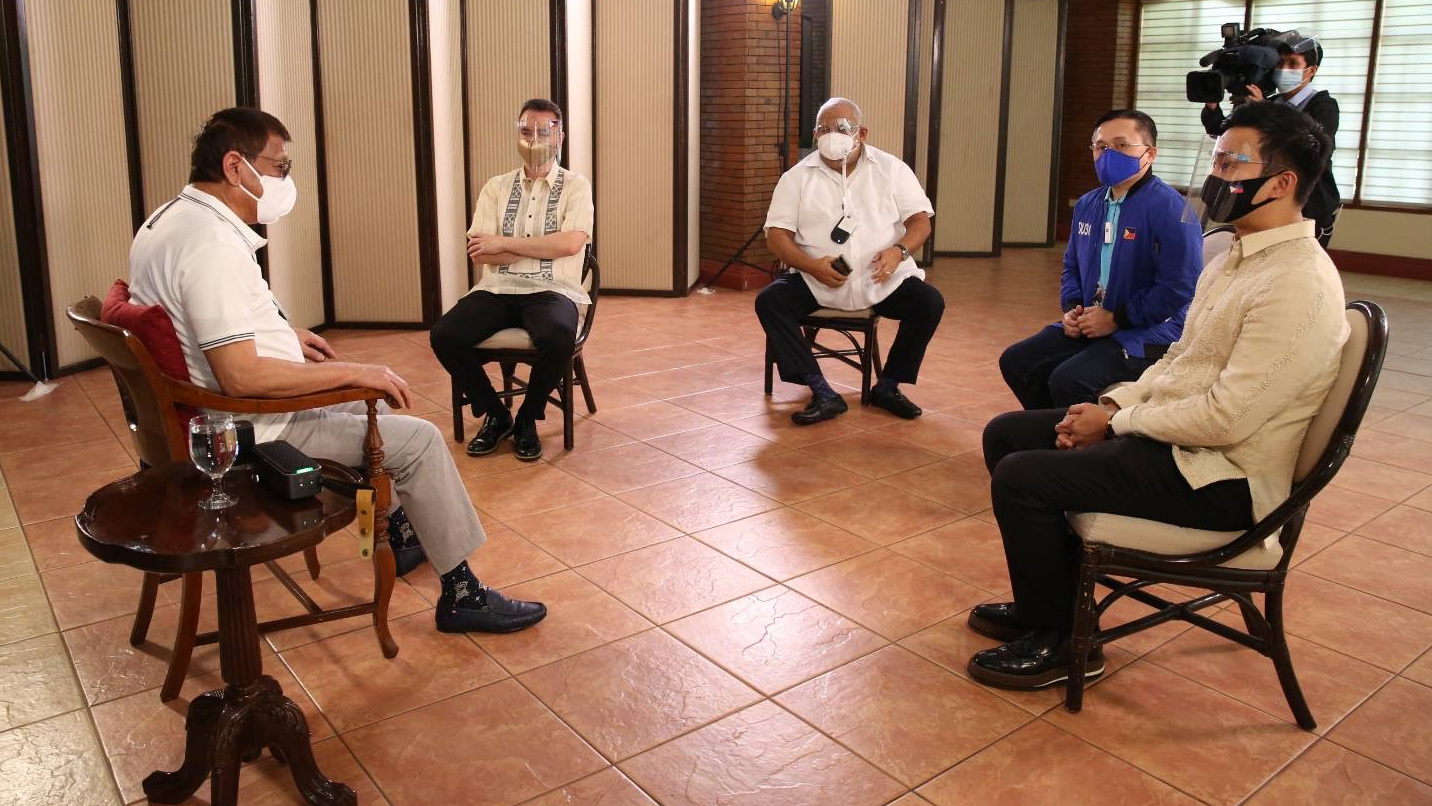
The House of Representatives under Duterte broke many conventions. In a span of five years, four House speakers have been elected, making Duterte the president with the most House leaders elected – second only to dictator Ferdinand Marcos.
Each of the changes in leadership was accompanied by its own political drama – from Alvarez to Arroyo, from Alan Peter Cayetano to Lord Allan Velasco. In these episodes, Duterte kept his distance.
As of July 2021, the House has also recorded the highest number of deputy speakers in its history: a total of 33 lawmakers – or about one in every 10 lawmakers deputized by the Speaker.
House economic affairs chairperson and AAMBIS-OWA Representative Sharon Garin sees the numerous speakers and deputy speakers as an indication of lawmakers feeling empowered under Duterte.
“On a good sense, you know people have seen their chances, more people are empowered in this administration. And, in some sense, that is good also, that the attention is not centralized to the president or the authority of the president. Everybody has a chance,” Garin said in an interview with Rappler.
She contrasted the Duterte administration with the administration of late president Benigno Aquino III, where Quezon City congressman Sonny Belmonte served as speaker all throughout the president’s six-year term.
“It’s different from the way PNoy [Aquino] and Belmonte did [it], and now it’s also different so it’s a bit more entertaining now, I guess,” Garin said.

Veteran lawmaker Albay congressman Edcel Lagman said Duterte’s act of standing aside when power grabs occur in Congress was his way of “washing hands.”
“But I don’t think anything would happen without his consent. Even when speaker Alvarez was ousted…he just did not want to be in the front because Alvarez used to be his major ally,” Lagman said.
Lagman and Panao also pointed out that, at the end of the political feuds, Duterte still had the last word.
Garin recounted her experience during the fight for the speakership between Cayetano and Velasco.
“Everybody was just having interviews left and right, but, at the end of the day, I think he assessed everybody’s opinion, whether from media, from people going to see him or, you know, opinions of everyone,” Garin said.
The Cayetano-Velasco tussle was ultimately settled in a visit to Malacañang by both contenders. There, Duterte said Velasco was to sit as Speaker, following their earlier “gentleman’s agreement” of sharing terms.
“I would say he still has a firm grip on how things pan out, or what the end result is. But, in that sense, he does not stop people from saying what they wanna say or do, whatever they wanna do,” Garin said.
She added, “I only thought about it now – that we have verbal fights and whatever kind of fights [among ourselves], but, at the end of the day, his grip is still strong.”
Delivering amid the drama
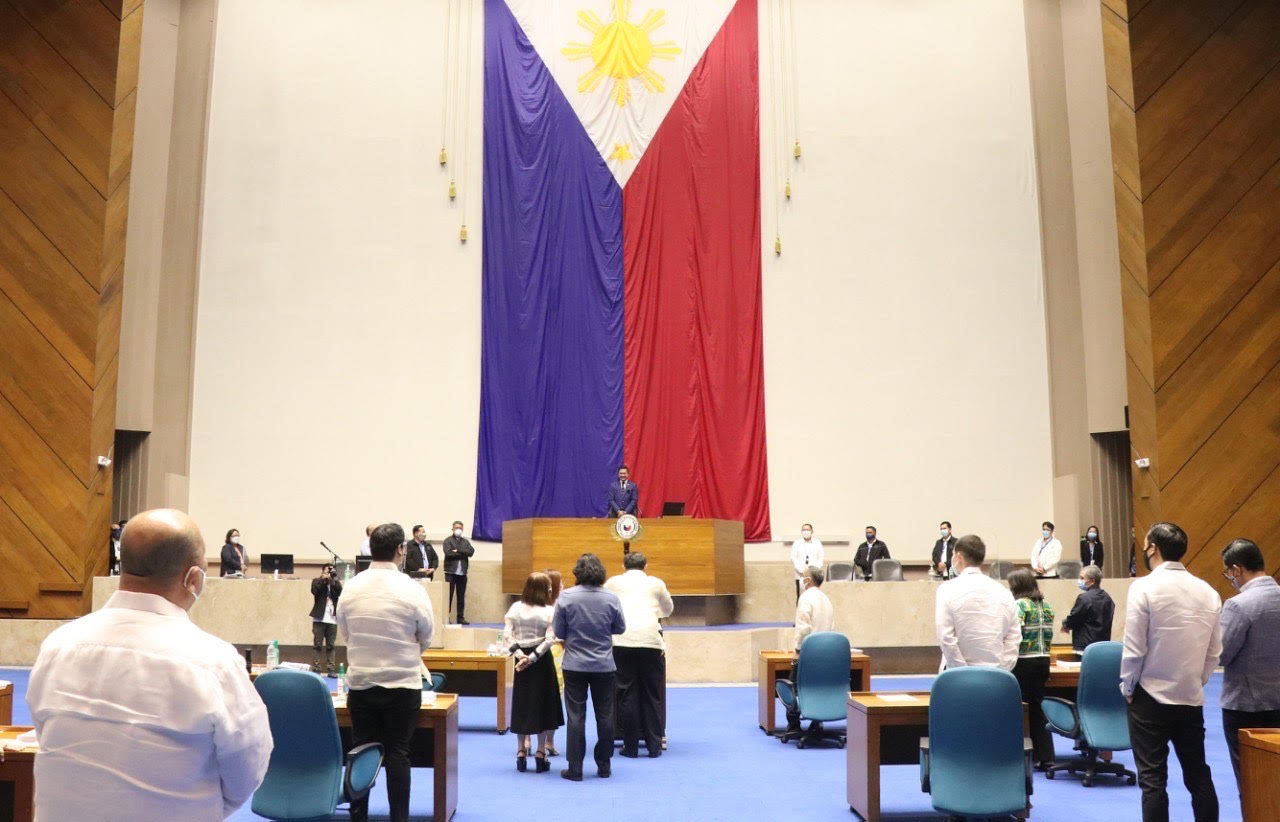
Despite the power grabs, the House remained faithful to Duterte, quickly working on legislation that he prodded them to pass.
This dynamic was most apparent, according to Lagman, in quickly passing laws that were politically controversial, namely the passage of the anti-terror law; the denial of a new franchise for leading entertainment and news network, ABS-CBN; and the allotment of zero appropriations for opposition lawmakers in the 2018 budget.
“With this unholy alliance between the supermajority and the beholden minority, the Congress, particularly the House of Representatives, has been rendered a mere rubber stamp of the President,” Lagman said.
With enough clout to decide the outcome of feuding lawmakers, why has Duterte failed in his priority agenda?
“I don’t think he really had the intention of championing them,” said Yusingco.
He pointed to federalism – a policy Duterte promoted during his campaign days, but recently has barely mentioned in his hours-long speeches.
Even the watered-down proposal of amending only the economic provisions of the Constitution has not been given promotion time by the once-proud federalism champion.
“It gave him that platform to rile against imperial Manila, to make promises to the regions. But, at the end of the day, I don’t think he really had an intention of pushing for it,” Yusingco said.
Lagman also noticed, saying, “No less than the President had most probably detracted from his proposition of federalism in the Philippines.”
This attitude reflects in Duterte’s unpassed priority bills, like the creation of the Boracay Island Development Authority, the modernization of the Bureau of Fire Protection, and the proposed National Land Use Act – bills that remain at the committee level.
Duterte allies dominate the Senate
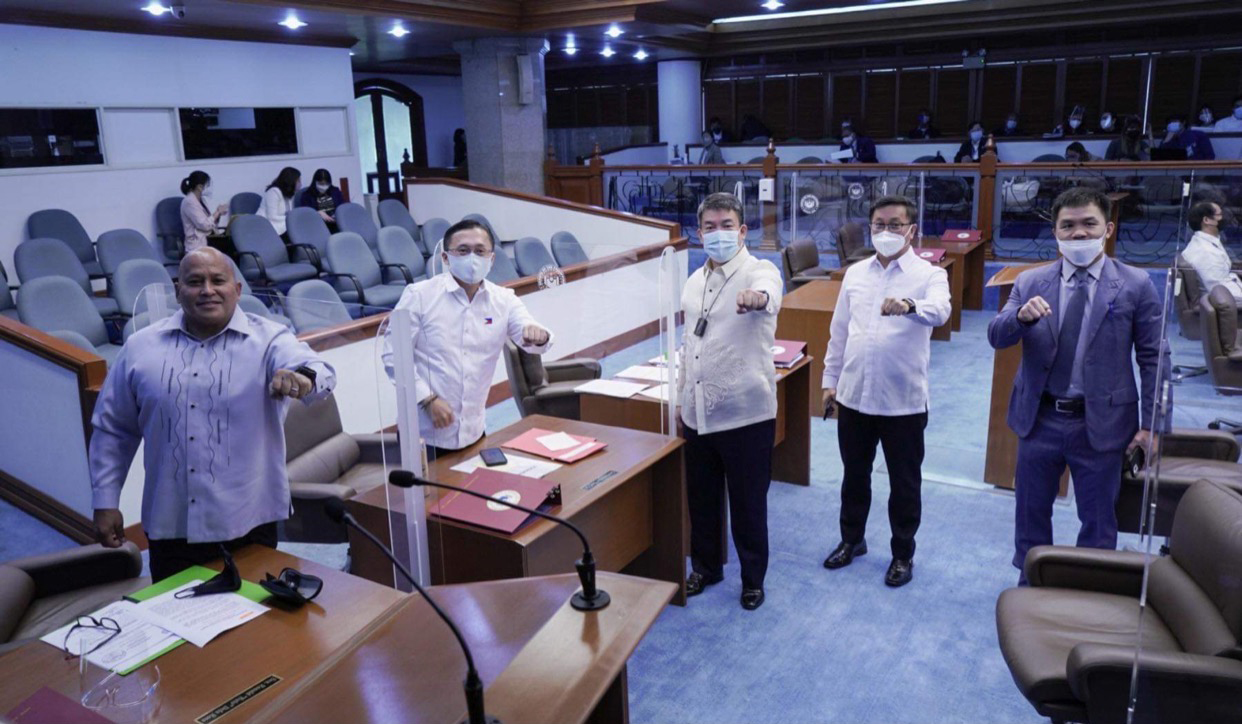
After the midterm elections, the President succeeded in packing the Senate with his allies. A majority of the senators now – 17 out of the 24 seats – are all considered allies of the President, with varying degrees of affinity with him. Senate President Sotto’s Nationalist People’s Coalition is allied with the President’s party, and Sotto considers Duterte as an old friend.
Independent senators Grace Poe and Lito Lapid as well as Senator Nancy Binay are neither administration nor opposition-allied politicians, but they all belong to the majority bloc.
That leaves only four senators in the minority: Liberal Party’s Franklin Drilon, Francis Pangilinan, and Leila de Lima, who is still detained due to what she has described as trumped-up drug charges against her, and Akbayan’s Risa Hontiveros.
The Senate’s chief fiscalizer, Drilon, said being outnumbered by Duterte allies had been challenging for the minority.
“The administration senators would always support his policies and our role is to make sure that…the laws that we pass will not be open to abuse, and make certain that it will only result in better life for our people,” said the Senate Minority Leader.
“Admittedly, President Duterte has enough support in the Senate to be able to pass the legislation that they want. But that’s our political system: you are in a saddle, you’re held responsible for the policies that you promulgate and you answer to the people during the election night,” he added.

Ateneo’s Yusingco called Duterte a “unicorn” in this regard, as he was the only chief executive in the post-EDSA years to build a super coalition even in the Senate.
But UP’s Panao believes the alliances in the Senate do not necessarily indicate subservience in the chamber. Senators are more independent-minded and do not always adhere to a party vote like district representatives. They do, however, have to strike a balance between the national sentiment and the wishes of the wildly popular President.
“Of course, that also plays into the equation of the legislators, these politicians. That’s the rational thing to do. So they would compute their risks in, for example, what are the things the President wants to be done, in the context of the policies he is pushing for. That would indicate their support,” said Panao.
But it always boils down to a number’s game. While minority senators are always given the time to scrutinize contentious bills on the floor, they would ultimately be outvoted if the rest of the chamber chooses to pass Duterte’s pet measures. When the Senate passed the anti-terror bill in February 2020, only Hontiveros and Pangilinan dissented.
“But, of course, as we push for policies in the Senate, it’s still a numbers game. Since we’re only four in the minority and only three can vote, we would routinely get outvoted on the floor, particularly for issues in which fiscalizing is the main agenda,” Hontiveros told Rappler.
Still, Senate stood up to Duterte

In the sunset years of the Duterte administration, however, senators became better fiscalizers of the President’s policies than their counterparts in the House. Clear examples of this are the refusal to tackle the bill reviving the death penalty and the resolution amending the economic provisions of the Constitution. It was also in the Senate where government officials’ testimony that ABS-CBN did not breach any laws was recognized, contrary to the findings of the House.
It’s a much better performance than the previous Congress, where the Senate faced criticisms for kowtowing to Duterte, either by delaying investigations, taking a soft stance on controversial issues, or even shielding the President himself from liability.
It would take four years for the Senate leadership to actually stand up to Duterte and ask the Supreme Court to define the President’s powers. In March 2020, Senate President Sotto, Senate Minority Leader Drilon, and senators Panfilo Lacson and Richard Gordon led the filing of the chamber’s petition challenging Duterte’s unilateral termination of the Visiting Forces Agreement with the United States.
Two years prior, opposition senators did not have the backing of the Senate when they filed a petition questioning the President’s unilateral withdrawal from the International Criminal Court.
For Sotto, this was what made the Senate an independent chamber: They criticized when they needed to criticize, and supported Duterte’s policies if they thought it was the right thing to do. He maintained that Duterte “never meddled” in the affairs of the Senate and supposedly carried no grudges when senators would bite back against abusive policies.
“We have criticized the President when we need to criticize the President. We have supported the moves of the executive department and the President if it is good for the majority of the public,” Sotto told Rappler. “But always, at the end of the day – as far as my leadership is concerned – we always decide on what is good for the majority, not what is good for the President or the administration, or for the opposition.”

This was echoed by Hontiveros, lauding her colleagues in the majority bloc for crossing party lines several times on seemingly contentious issues “to uphold what is just.”
Hontiveros said the Senate condemned the brazen attacks against members of the law profession and pushed back against demeaning statements thrown against the body, like when senators sought to censure former NTF-ELCAC spokesperson Antonio Parlade Jr.
Hontiveros also recalled that, in the 17th Congress, the Senate adopted the resolution that denounced the plan of the House to publicize De Lima’s alleged sex video when the lower chamber was investigating her for alleged links to the drug trade.
“Additionally, I want to say that, by and large, the Senate leadership has been fair and respectful to the minority. An important reason for this is Senator Frank Drilon, an excellent Minority Leader whose wisdom and guidance we always seek,” said Hontiveros.
Broken promises
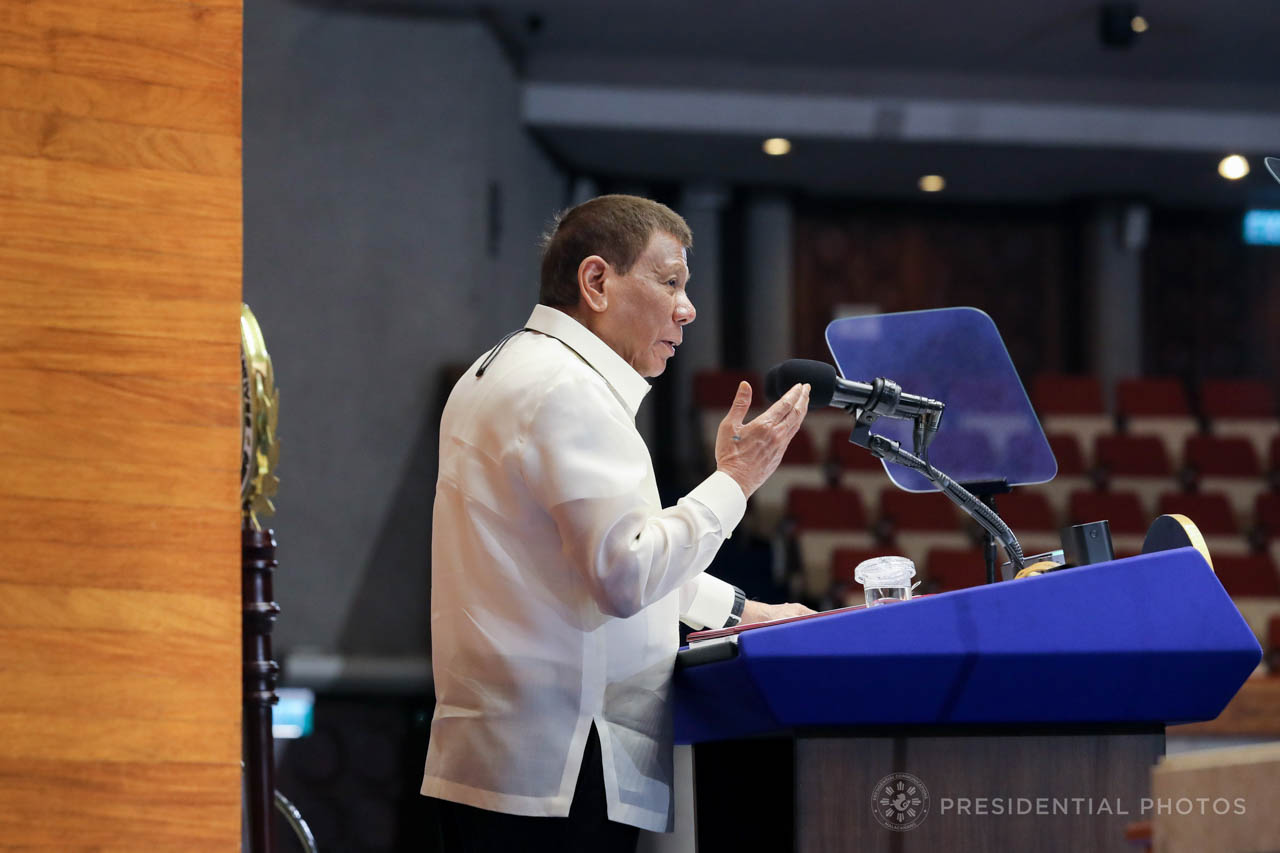
With the overwhelming support he enjoyed in both the House and the Senate, Duterte could have passed more landmark legislation similar to the creation of the Bangsamoro Autonomous Region in Muslim Mindanao or the Universal Health Care Law.
The tough-talking Duterte asked much from Congress, but he ultimately failed to ensure the votes for the many reforms he vowed to push.
It’s just one broken promise after another from this seemingly untouchable President.
“If he really pushed through with his campaign promises, given the reality of the super coalition in Congress that he enjoyed, I think many of the political reforms that he promised in 2016 would have been enacted, they would have been implemented, and we would be in a different position now,” said Yusingco.
Duterte had the authority, the numbers, and the popularity to ensure the passage of his pet bills, but in the end squandered his arsenal in Congress. – with research by Luisa Sandoval, chart by Michael Bueza/Rappler.com
Add a comment
How does this make you feel?
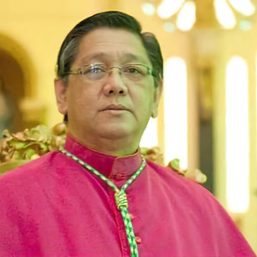
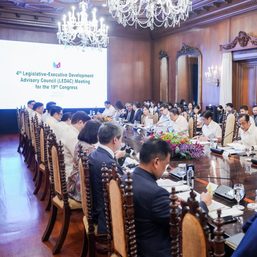
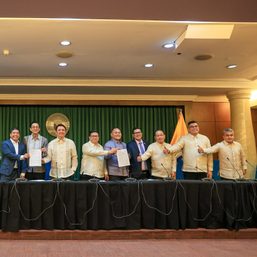
![[New School] Opening closed doors: Why full disclosure on congressional insertions matter](https://www.rappler.com/tachyon/2024/02/20240214-full-disclosure-congressional-insertions-matter.jpg?resize=257%2C257&crop=237px%2C0px%2C720px%2C720px)
![[OPINION] The House strikes back](https://www.rappler.com/tachyon/2024/02/TL-House-strikes-back-February-12-2024.jpg?resize=257%2C257&crop_strategy=attention)
![[OPINION] ‘Some people need killing’](https://www.rappler.com/tachyon/2024/04/tl-some-people-need-killing-04172024.jpg?resize=257%2C257&crop_strategy=attention)
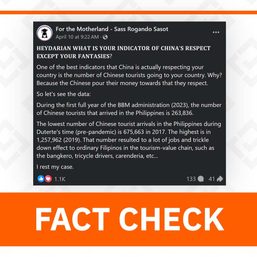
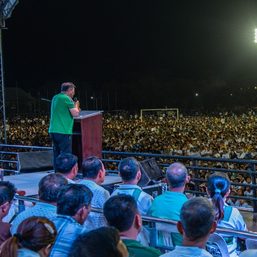


There are no comments yet. Add your comment to start the conversation.